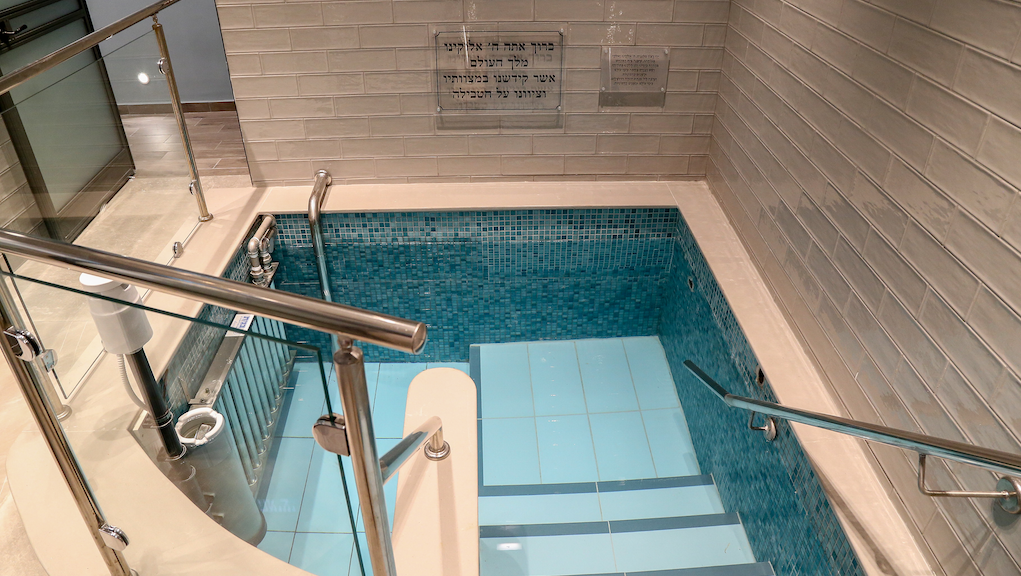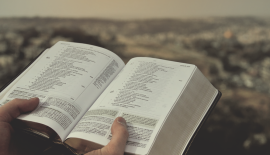Mikveh – Signs of the Faith
In this series, ‘Signs of Faith’, objects that express Jewish faith are explained and discussed.
What does a Jewish community need to make Jewish life possible? One of the most important things, even more, important than a synagogue, is a mikveh. A mikveh is a ritual bath. Through it, life is consecrated and sanctified. This does not only refer to the body. Pans, dishes and other eating utensils are also ritually cleansed before they are put into use, so that they are kosher.
The mikveh must meet a number of requirements. An average person must be able to immerse himself completely in it. The Talmud states an amount of water that is equivalent to about 575 litres. There must be a certain amount of natural water from a well, from the ground or rainwater, which can be supplemented with (hot) tap water. The water must flow in. The mikveh may not be a movable ‘vessel’, it is therefore constructed on-site. It has no drain but is emptied manually.
‘The mikveh provides a spiritual elevation that is also experienced at various events in Jewish life today.’
The mikveh is not meant for hygiene but for ritual purity. Therefore, before entering the mikveh, you must wash thoroughly, clean your nails well, etc., so that the water of the mikveh can reach every spot of your skin.
The Bible (e.g. Leviticus 15) describes cases for which ritual cleansing is necessary. The need for ritual cleansing is related to the presence of the tabernacle in Israel’s midst. But the mikveh provides a spiritual elevation that is also experienced at various events in Jewish life today. Before marriage, a bride and groom go to the mikveh. Married women go to the mikveh after their monthly period, and also after the birth of a child, and a father before the circumcision of his son. Before the beginning of Yom Kippur (Day of Atonement), one goes to the mikveh. Many Orthodox men also go to the mikveh before the Sabbath, and many Hasidic men even go every day.
The Hebrew text of Jeremiah 17:13 contains the word mikveh, which is translated as ‘hope’: “Lord, Hope of Israel.” But a Jewish interpretation relates it to Yom Kippur: “As a cleansing bath for Israel is the Eternal One.” “That contact with God is the final atonement. That contact brings everything into purity” (Rabbi Evers, Jerusalem).





